What are the characteristics of Yunnan coffee beans?
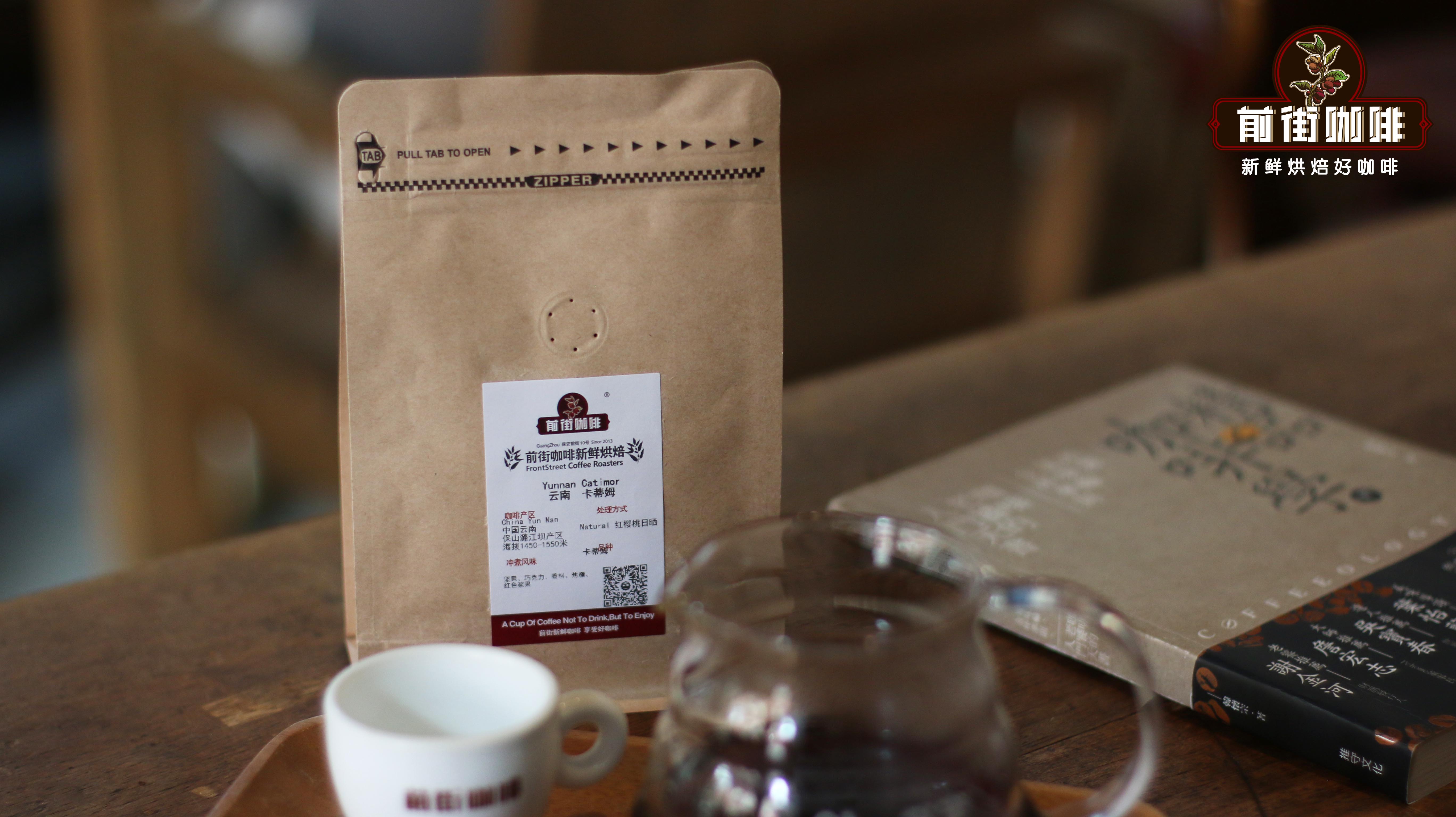
In the front street, a friend noticed the Yunnan coffee on the bean list and wondered, "is Yunnan coffee also a boutique coffee?" Is it good? "at this time, the front street will tell you that you might as well taste it for yourself. In the front street below, let's first learn about Yunnan coffee from the aspects of variety, soil, and treatment.
First, let's have a brief understanding of the history of coffee in Yunnan.
Since the French missionary Tian Deneng planted the first batch of coffee trees in 1904, Yunnan has a history of more than one hundred years. In the 1950s and 1960s, Yunnan coffee began to expand its planting scale. at that time, in order to meet the coffee demand of the Soviet Union and Eastern European countries, Lujiangba built the first small seed coffee production and export base in China. The real standardized cultivation of coffee in Yunnan began in the 1980s. Limited by rough processing methods, baking techniques and farmers' poor knowledge of coffee, Yunnan beans have been bought by international coffee giants such as Nestle, Starbucks and McDonnell at low prices as a raw material for commercial beans and instant coffee.
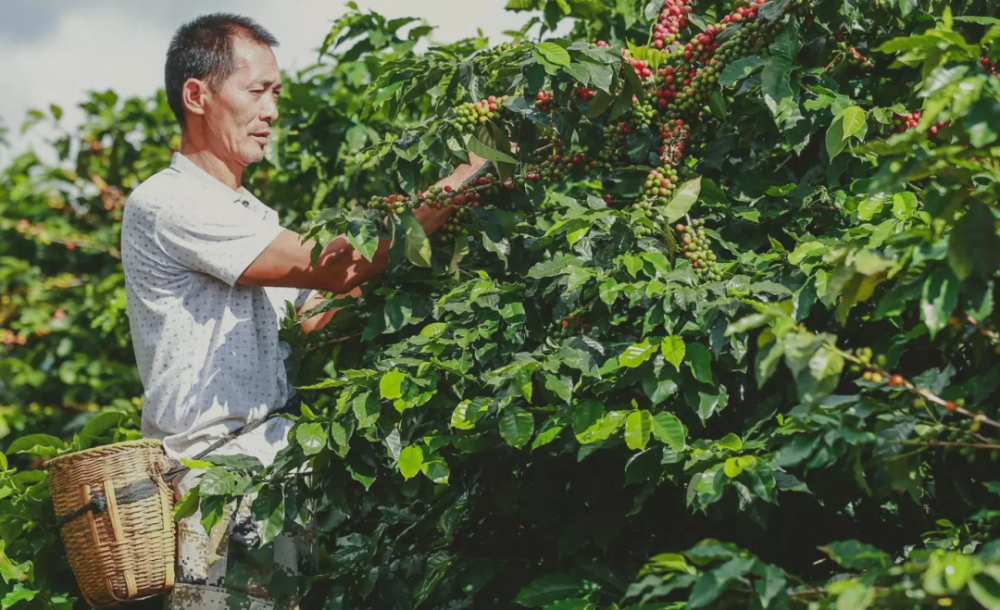
It was only after Nestl é invested in Yunnan coffee industry in 1988 that it had a large-scale output. since 1992, Nestl é established the Ministry of Coffee Agriculture to specially guide and study the improvement and cultivation of Yunnan coffee and buy coffee according to the price of the spot market in the United States. Katim strains with high yield and resistance to rust were introduced from the Portuguese Coffee Rust Research Center, Costa Rica and Thailand. Katim in Lujiangba alone has nearly 180000 mu, which is easy to manage, not easy to get sick, and is more popular with farmers.
These measures not only further expand the planting area of coffee in Yunnan, but also increase the enthusiasm of coffee farmers. At the same time, it has also established the Katim variety to replace the ancient tree species iron pickup, and become the main variety of coffee in Yunnan. In 1995, the Yunnan provincial government formally listed Yunnan coffee cultivation as the "18 projects" of biological resources. coffee cultivation has developed rapidly, and the area and output have been greatly increased.
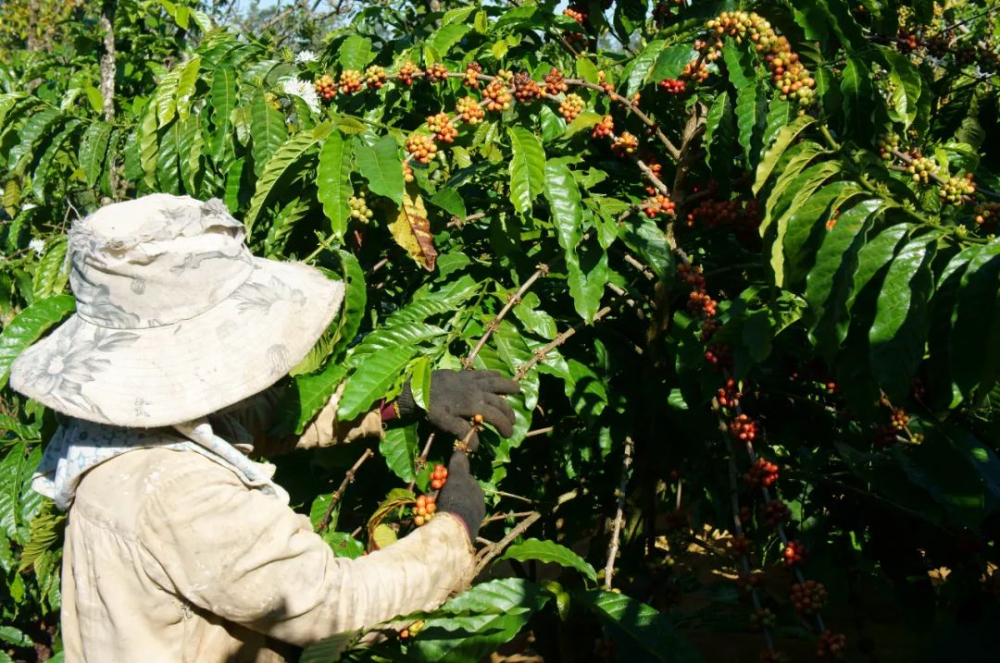
What breed does Katim belong to?
Katim 7963 (Catimor) is a stable hybrid of coffee rust by the Portuguese Tropical Research Institute (HCT). In appearance, this variety has the characteristics of compact tree shape, short growth, many branches, short fruit nodes, exuberant growth, strong vitality, and the greatest feature is the amazing ability of rust resistance and high yield. Therefore, it is deeply loved by Yunnan farmers. At present, more than 90% of the coffee trees in Yunnan are Katim.
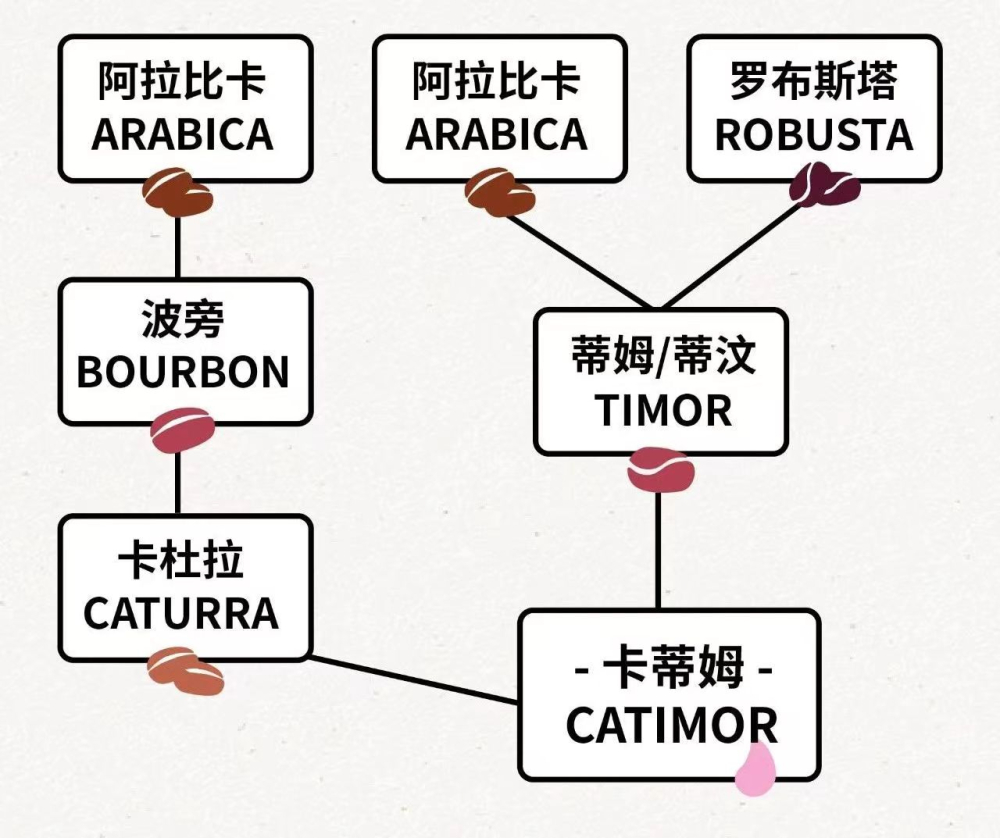
However, Katim is not a 100% Arabica breed. Katim is a cross between rust-resistant Tim and Kaddura and contains the Luodou pedigree of 1 to 4. Friends who know about coffee varieties should know that compared with small-grain varieties, Robusta varieties have a low taste and obvious bitter taste, mainly showing the flavor of cereals and walnuts, which is not easy to have earthy taste. Katim inherited the genes of Luodou, and the local treatment is rough, bitter and fishy, and is often described as a "devil-like tail rhyme". However, in recent years, people pay more and more attention to the quality of Yunnan coffee, Katim has also been more scientific cultivation and cultivation, as well as the rise of post-processing methods, coffee flavor and quality has also been greatly improved.
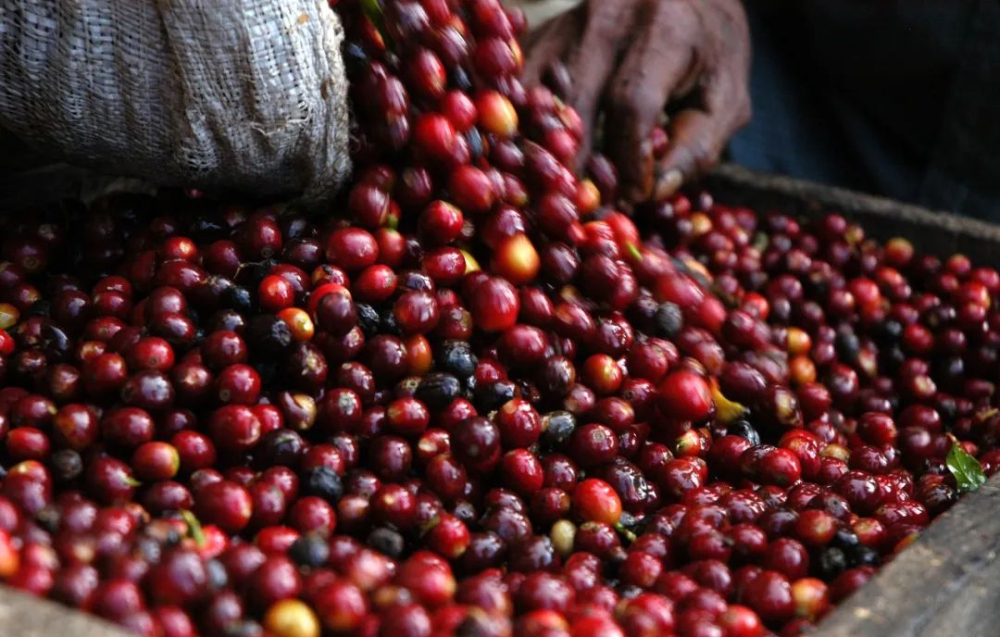
Qianjie believes that if Yunnan wants to improve the overall quality of coffee, it needs to be gradually changed, and Katim's rust resistance will gradually lose after 20 to 30 years, so the problem of replacement is the current situation facing Yunnan. Therefore, we have seen many new varieties appear in Yunnan in recent years, such as the world-famous Rose Summer.
In order to explore the relationship between coffee cultivation and varieties, Qianjie opened a space to grow coffee in Lincang, Yunnan Province in 2013, breeding ancient tin card varieties and a small number of bourbon varieties. Iron pickup needs to be planted at high altitude in order to show rich and diverse flavor, fruit acidity and delicate taste, is recognized as a high-quality variety, but the plant yield is low, poor resistance, easily infected with leaf rust, coffee berry disease, nematode disease, so more manpower management is needed. After seven years, the first batch of achievements of Qianjie was finally harvested in 2020, and the street was named "Qianjie 2013 Coffee" after its own name.
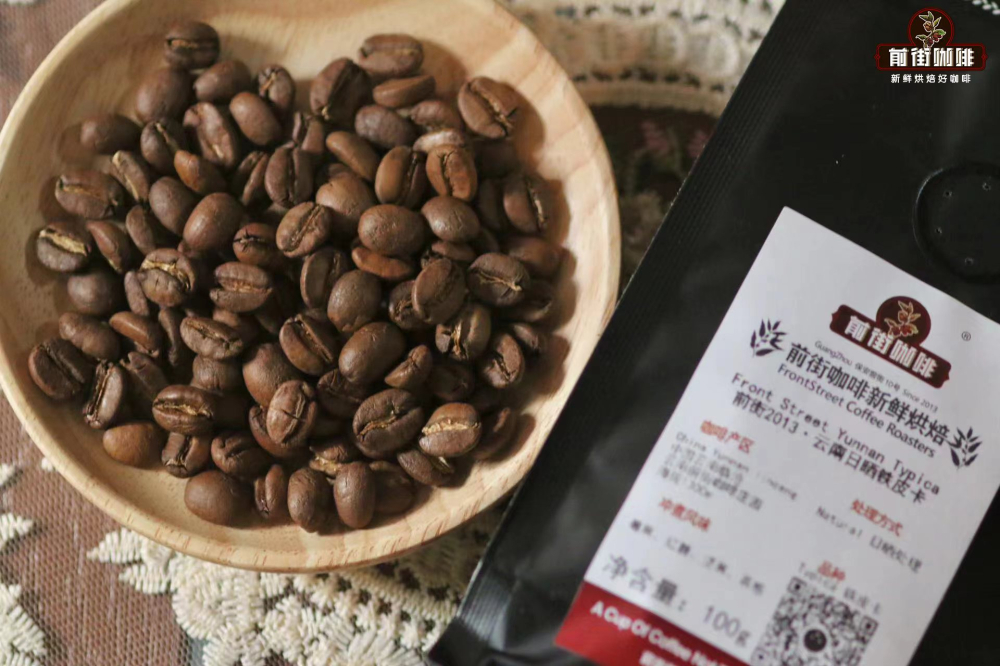
What's the taste of Yunnan coffee?
Some merchants use novel flavor enhancement methods to cover up the defective taste of Yunnan bean itself, and add a lot of flavor to it and raise the price. Qianjie feels that this does not really retain the taste of Yunnan coffee, but also misleads consumers. After tasting Yunnan coffee beans with special treatment, some friends feel that the aroma is particularly prominent, so they think that this is the mainstream processing method of Yunnan coffee. In fact, most Yunnan coffee farmers are in difficult conditions and do not have high-priced processing equipment, so the vast majority of Yunnan coffee beans can only be treated naturally, that is, washing and solarization.
If you really want to explore the "taste of Yunnan", Qianjie here recommend Qianjie Yunnan small grain beans, using water washing treatment. Qianjie launched rations beans selected 7 classic producing areas, covering a number of very representative producing areas, varieties, using the natural treatment method commonly used in the producing area, showing a unique style of the producing area.

The steps of washing: remove the peel and pulp of the picked coffee fruit by practical machine, put the peeled coffee beans into the fermentation tank for fermentation, decompose the pectin layer by fermentation, wash the decomposed pectin repeatedly with clean water, and finally dry the coffee beans for 1 week and 2 weeks. Washed Yunnan coffee not only reduces the defect rate, the quality of the coffee produced is more stable, but also makes the coffee flavor more clean.
Qianjie also has a coffee bean "Qianjie 2013" that uses natural drying and sun treatment, which is produced from Qianjie's own manor in Lincang, Yunnan Province. It is selected from an elegant tin card variety and uses natural sun treatment to make the coffee sweeter. Whenever November comes, the coffee fruits planted in Qianjie are also ripe one after another. Qianjie will arrange for workers to pick red coffee cherries one by one and spread the fresh coffee fruits in the sun to dry them naturally and turn them irregularly to let them dehydrate evenly. Avoid the negative taste of excessive fermentation.
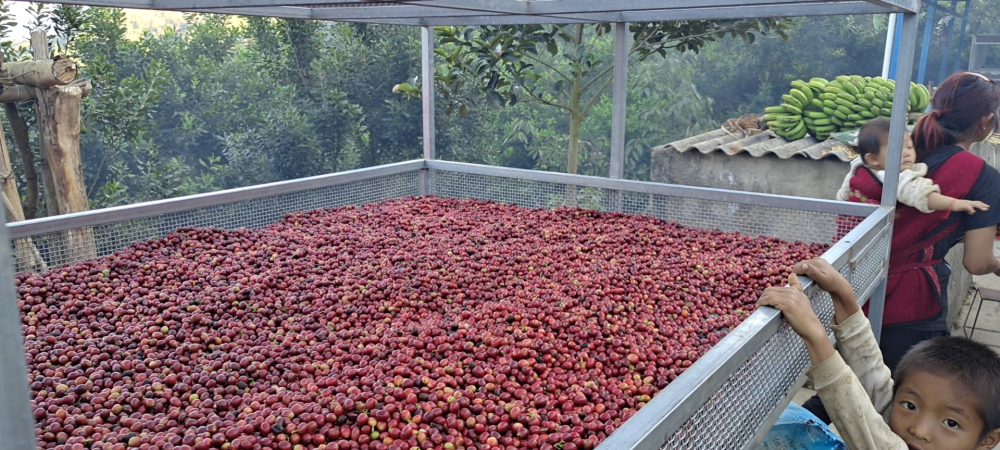
When talking about the flavor characteristics of Yunnan coffee in the current street, some people describe it as chocolate, some people say it is like sweet potatoes, and some friends think it is like Sanhua Li. Qianjie believes that the flavor of Yunnan small grains belongs to the neutral and balanced tonality, that is, there are both sweet and sour. Therefore, Yunnan coffee in Qianjie is moderately roasted, highlighting the roasted aromas of chocolate and nuts while retaining part of the acid. Qianjie drink Yunnan small grain grain beans from the cup test, showing the aroma of nuts, herbs, brown sugar, sweet melons and fruits, and the sour quality of plums, with a balanced taste. The tanned tin card shows chocolate, baked bread, tropical fruit fermentation and black tea aftertaste.

Brewing parameters of Yunnan small-grain coffee in Qianjie:
Filter cup: hario v60
Powder content: 15g
Water temperature: 90 degrees Celsius
Degree of grinding: pass rate of No. 20 screen 75%
Gouache ratio: 1:15
Three-stage water injection: wet the powder bed with twice as much water as coffee powder to form a drum and steam for 30s, then fill the small water from the inside to the outer circle to 125g, wait for the powder bed to drop to half of the filter cup, and continue to inject the same fine water into the third section to 225g, until all the coffee liquid has been filtered and remove the filter cup for about 2 minutes.
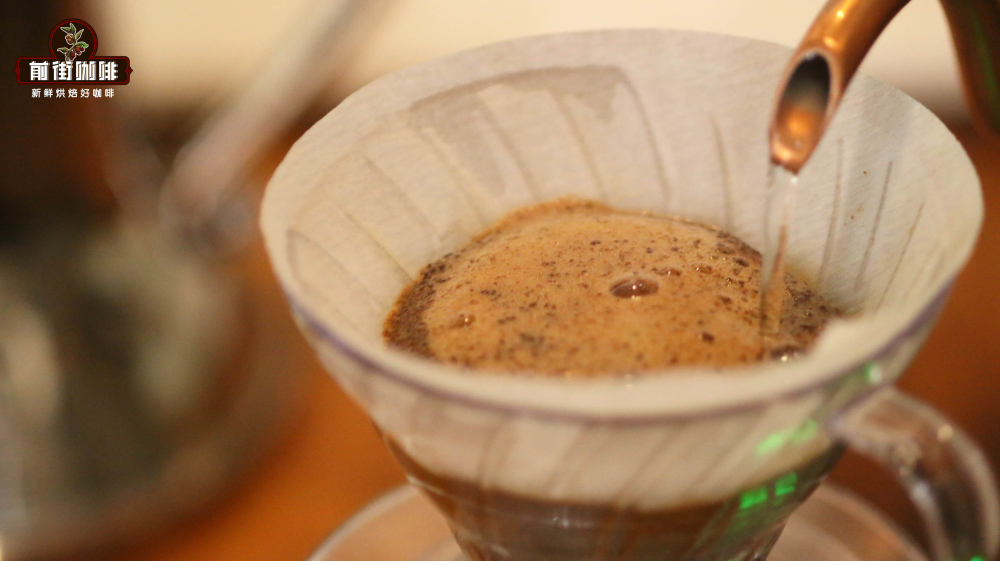
Qianjie Yunnan small grain grain bean coffee flavor: smell very nutty, entrance has herbs, chocolate, caramel, finish with a touch of fruit acid, the overall taste is balanced, with a good cleanliness.
Qianjie 2013 Sun Iron pickup Coffee flavor: dry powder shows the aroma of caramel, nuts and citrus, chocolate, fermentation and berries at high temperature, the acidity of plums as the temperature drops, and the sweet finish of black tea and sugar cane. Medium to high alcohol thickness, taste clear, rich and varied layers.
Professional coffee knowledge exchange more coffee bean information please follow the coffee workshop (Wechat official account cafe_style)
For more boutique coffee beans, please add private Qianjie coffee on Wechat. WeChat account: qjcoffeex
Important Notice :
前街咖啡 FrontStreet Coffee has moved to new addredd:
FrontStreet Coffee Address: 315,Donghua East Road,GuangZhou
Tel:020 38364473
- Prev

Evaluation on the Grade and Flavor of Yunnan small Coffee beans
What kind of coffee is good to drink from Yunnan?
- Next

Which brand of Yunnan coffee is the best in Yunnan? it is recommended by the brand list of handmade coffee beans.
Today, I would like to introduce the well-known coffee bean producing areas in Yunnan. Yunnan is most famous for small coffee beans, while Yunnan small coffee is mainly grown in Lincang, Baoshan and Dehong areas, which have a very high altitude. Suitable for the cultivation of boutique coffee, their average annual temperature is about 22 degrees, the land
Related
- Beginners will see the "Coffee pull flower" guide!
- What is the difference between ice blog purified milk and ordinary milk coffee?
- Why is the Philippines the largest producer of crops in Liberia?
- For coffee extraction, should the fine powder be retained?
- How does extracted espresso fill pressed powder? How much strength does it take to press the powder?
- How to make jasmine cold extract coffee? Is the jasmine + latte good?
- Will this little toy really make the coffee taste better? How does Lily Drip affect coffee extraction?
- Will the action of slapping the filter cup also affect coffee extraction?
- What's the difference between powder-to-water ratio and powder-to-liquid ratio?
- What is the Ethiopian local species? What does it have to do with Heirloom native species?

